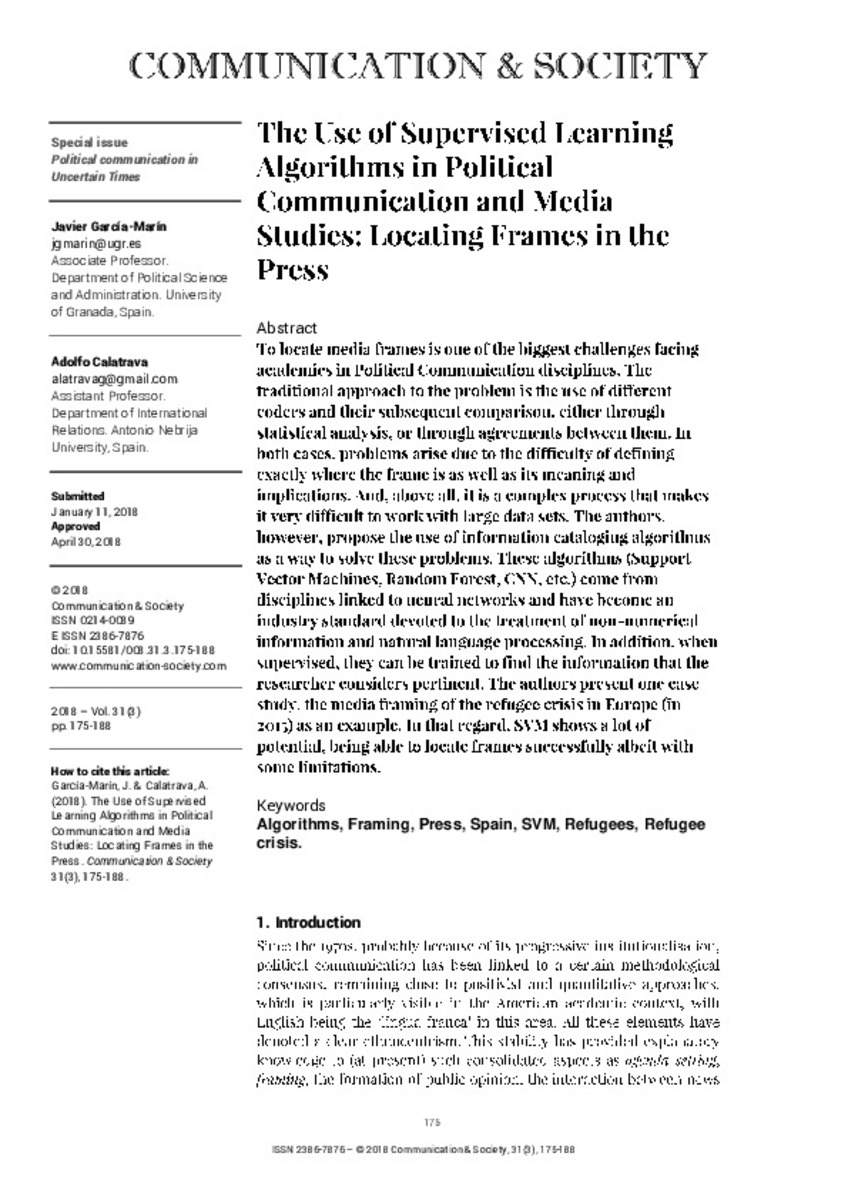The Use of Supervised Learning Algorithms in Political Communication and Media Studies: Locating Frames in the Press
Palabras clave :
Algorithms
Framing
Press
Spain
SVM
Refugees
Refugee crisis
Fecha de publicación :
2018
Editorial :
Servicio de Publicaciones de la Universidad de Navarra
Cita:
García-Marín, J. (Javier); Calatrava, A. (Adolfo). "The Use of Supervised Learning Algorithms in Political Communication and Media Studies: Locating Frames in the Press". Communication & Society. 31 (3), 2018, 175 - 188
Aparece en las colecciones:
Estadísticas e impacto
0 citas en

0 citas en

Los ítems de Dadun están protegidos por copyright, con todos los derechos reservados, a menos que se indique lo contrario.







